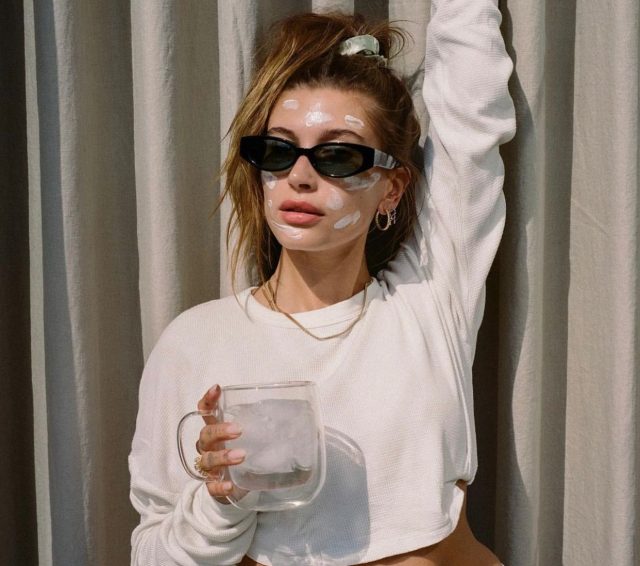
A glass of water on an empty stomach starts the metabolism and detoxifies the body, and you should drink at least two liters of fluid throughout the day – these good habits are so tightly integrated into our lives that we can no longer doubt. their accuracy. In fact, water in the morning does not help the body, and there is still no strict norm for daily fluid intake. At this point, we realized that all our knowledge about water had turned into a big mistake. So, they asked Konstantin Ovsyannikov, professor of the Department of Therapy at the FMBA University of Medicine and Biology, endocrinologist and nutritionist at the Sensavi Beauty Institute, how to drink water correctly.
How much water should you drink per day?
A study was conducted in the American town of Walkerton: ordinary residents were given different amounts of water to drink, their diuresis (the amount of urine excreted per day) and kidney function were monitored for 15 years. At the end of this fission experiment, scientists made an interesting discovery: The more water people drank and the more urine they excreted, the better their kidneys worked.
In order for diuresis to be high, you need to drink at least one and a half to two liters per day.
In general, with each year of our life the kidneys work even worse. But research has shown that this process can be slowed down if you regularly drink plenty of water. Therefore, the following conclusion is evident: the more water you drink, the more benefits you bring to the body.
How do you calculate your rate?
There are different calculation formulas. Recent research shows that you need to increase the amount of fluid released the day before: well, you need to calculate your diuresis for the last day and add no more than 500 ml of water to it. But in reality no one will do that. That’s why the best advice is to drink when your body craves it. You don’t have to force it, but you shouldn’t ignore it either.
In which cases should it be necessary to increase the daily water rate?

There is no water standard. It is determined only by the desire to drink. If you need to detoxify the body in case of food or alcohol poisoning, it makes sense to increase the amount of water consumed. Or with a high fever. For example, when a patient has the flu, the body fights viruses. As a result, proteins are released due to the increase in temperature and the appearance of pain in the muscles and joints. Water helps to reduce the concentration of toxins and remove them from the body as quickly as possible. Drinking plenty of fluids is the equivalent of hospital-inserted droppers.
Should I drink more water in the summer?
In cases where the risk of dehydration increases, you need to drink more water. A lot is lost in the process of sweating in the summer, so it makes sense to increase the amount of fluid consumed. The same should be done for poisoning, diarrhea or frequent diuresis. In these cases, it is better to drink more water than not to drink enough. Water should always be at hand – in the car, at home, at work.
What temperature should the water be at?
If it’s hot outside and hyperthermia begins, the body tends to lower its body temperature. You can stand under the air conditioner or cool off from inside. In this case, only a glass of cold water will benefit. Even cold water helps if there are problems with the intestines, hypotension in the gallbladder, if there is no stool for several days. It stimulates peristalsis.
If the situation is the opposite – for example, if you suffer from diarrhea, it is better to drink warm water. It will help relax the muscles and improve the functioning of the gastrointestinal tract.
When should you drink water?

There are no strict rules about when to drink water. Our brain gives very clear signals when the body needs water.
Therefore, you should drink when you feel thirsty.
However, this process is generally impaired in the elderly over 65 years of age. They just need to be reminded.
And a glass of water on an empty stomach?
No studies confirm that a glass of water in the morning affects the functioning of the body in any way. In the morning I just want to drink because the kidneys continued to work all night and the new fluid did not enter the body. It needs to be replenished to restore the water and electrolyte balance. A glass of water in the morning does not remove toxins and fat deposits – this is another myth.
Can you drink water while eating?
Yes, you should drink water with meals. Thus, we create the right consistency for digestion. Eating dry food increases the risk of slowing the initial digestion process in the stomach.
What are the consequences of drinking too much water?

Overhydration can occur if you deliberately force yourself to drink more than necessary. The kidneys will work in emergency mode to remove excess fluid, and with it useful salts and minerals. Overhydration also puts a strain on the circulatory system, causing an increase in blood pressure and an increase in heart rate. Excess water can enter the capillaries and lymphatic vessels, causing swelling.
What threatens the lack of water?
In this case, there is a risk of dehydration or dehydration. There are several degrees of severity. A mild degree is a decrease in skin turgor. More severe – a drop in blood pressure, poor health, lethargy. And, of course, impaired kidney function.
Can water be replaced with other liquids?
Drinking water is not the only source of fluid, of course. Vegetables, fruits, soups, tea and coffee – all these foods also contain water. But it is best to supplement your diet with mineral water.
How to drink water to lose weight?
To lose weight, you need to reduce your calorie intake. New food systems are based on feeding the bacteria found in the gut, for example. These bacteria are active – they produce proteins that, in turn, enter the bloodstream and regulate both our mood and appetite, and are also responsible for allergic reactions. Water plays no role in the weight loss process.
Source: People Talk
I’m Roger Gritton, and I’ve been writing for the The Fashion Vibes for over 5 years now. My specialty is beauty news; I’m passionate about covering the latest trends, products, and innovations in the industry. In my time there, I’ve become known as an authority on all things beauty-related.
I love discovering new experts to interview, researching up-and-coming ingredients and techniques that are making their way onto our beauty shelves and highlighting people who are making a difference in the world of cosmetics. My work has appeared not only on The Fashion Vibes, but also several other publications including the New York Times Magazine, Allure Magazine and Refinery29.





